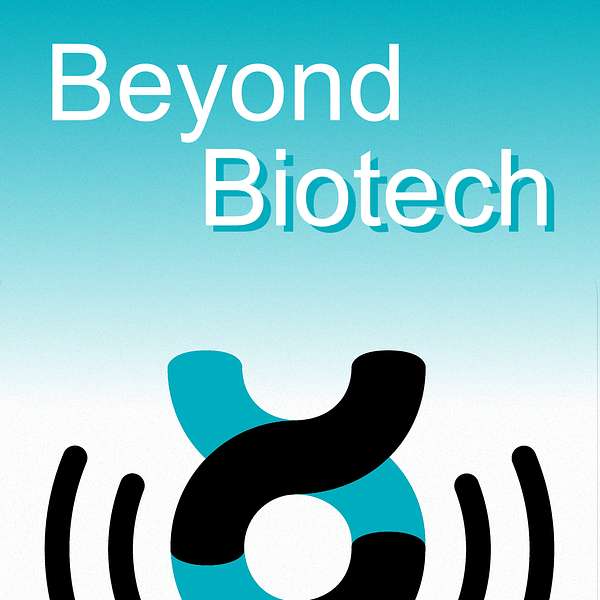
Beyond Biotech - the podcast from Labiotech
Welcome to the official Labiotech.eu podcast - Beyond Biotech! Each week, we talk about what's happening in the world of biotech, with news and interviews with experts from companies around the world. Join us as we cover the latest news, breakthroughs and innovations shaping the life sciences industry.A new podcast episode is available every Friday. The host is Dylan Kissane.
Beyond Biotech - the podcast from Labiotech
Beyond Biotech podcast 25: Center for Global Development, Humacyte, Transgene
2:33 Labiotech.eu news
5:03 Humacyte
23:01 Transgene
37:21 Center for Global Development
54:32 JLL
This week, we have three interviews. One is from Bio-Europe, a chat with Transgene chief business officer, Steven Bloom, and we also have conversations with Humacyte CEO Laura Niklason, and with Anthony McDonnell, Senior Policy Analyst at the Center for Global Development, on the subject of antimicrobial resistance.
We also have our weekly commentary from Travis McCready at JLL.
Humacyte
The ongoing war in Ukraine continues to present significant challenges for frontline hospitals in treating the injured. As part of the humanitarian aid effort, U.S. biotech, Humacyte, has worked with the FDA and the Ukrainian Ministry of Health to send 30 investigational bioengineered blood vessels to help repair tissue injuries from bomb and gunshot wounds.
Humacyte’s human acellular vessels, or HAVs, are off-the-shelf replacement vessels that help the body heal itself. They are currently being evaluated in multiple advanced-stage clinical trials in vascular trauma repair, arteriovenous access for hemodialysis and peripheral arterial disease and so far, have been implanted in more than 500 patients to date.
The HAV is made by seeding vascular cells from a qualified cell bank onto a biocompatible, biodegradable polymer mesh in a bioreactor bag. Over weeks, the cells grow and create new tissue, forming a tube-shaped vessel structure while the polymer mesh degrades. The resulting bioengineered vessel is then decellularized to create the HAV: an extracellular matrix that retains the biomechanical properties of the vessel but is cleansed of cellular components that could induce an immune response. The HAV in the bioreactor bag can then be shipped, stored, and is immediately available when needed.
Reaction to European Union action on antimicrobial resistance
Fourteen Member States wrote to the European Commission recently outlining why they think the EU’s proposed policies around antimicrobial resistance (AMR) are costly, inefficient, and will disrupt the market for generic drugs.
Anthony McDonnell, senior policy analyst at the Center for Global Development, looked in detail at the EU’s proposals, why member states are revolting against it, and which policies the EU should actually implement to successfully combat AMR.
He said that, for months it has been speculated that the EU may move toward transferable exclusivity vouchers (TEVs).
The14 countries have made three counter proposals for how new antimicrobials can be encouraged.
Transgene
Transgene is a biotechnology company focused on designing and developing targeted immunotherapies for the treatment of cancer. Its programs utilize viral vector technology with the goal of indirectly or directly killing cancer cells.
The company’s clinical-stage programs consist of two therapeutic vaccines (TG4001 for the treatment of HPV-positive cancers, and TG4050, the first individualized therapeutic vaccine based on the myvac platform) as well as two oncolytic viruses (TG6002 for the treatment of solid tumors, and BT-001, the first oncolytic virus based on the Invir.IO platform).
With Transgene’s myvac platform, therapeutic vaccination enters the field of precision medicine with a novel immunotherapy that is fully tailored to each individual. myvac allows the generation of a virus-based immunotherapy that encodes patient-specific mutations identified and selected by AI capabilities provided by its partner NEC.
With its proprietary platform Invir.IO, Transgene is designing a new generation of multifunctional oncolytic viruses. It has an ongoing collaboration with AstraZeneca.
Subscribe to our newsletter